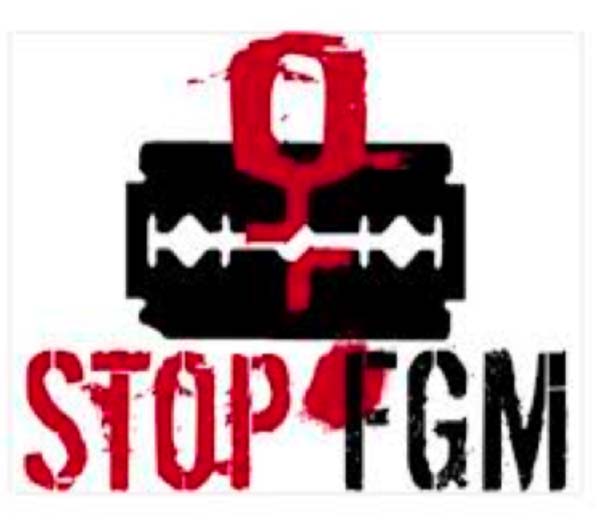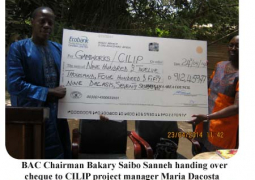
I was opportune to be in the midst of Islamic Scholars across the length and breadth of the country who recently attended the National Islamic Conference held at the Paradise Suites Hotel on the theme “Islamic Leaders Dialogue around FGM.”
Our Islamic Scholars seemed to be at variance over the issue of FGM being an Islamic obligation at a time when the world is gearing for International Day of Zero Tolerance for FGM on 6 February 2016.
It was amazing and surprising to see that even after a ban on Female Genital Mutilation; the religious leaders of the country are not speaking with one voice regarding the issue.
According to UNFPA, the elimination of FGM is a key target under Goal 5 of the UN’s Sustainable Development Goals, and this year’s day is being held under the theme “Mobilising to Achieve the Global Goals through the Elimination of FGM by 2030”.
It will also feature a performance by musicians and FGM advocate Inna Moja and a series of monologues that performed The Arts Effect.
Female genital mutilation comprises all procedures that involve altering or injuring the female genitalia for non-medical reasons and is recognised internationally as a violation of the human rights of girls and women.
Globally, it is estimated that between 100 million and 140 million girls and women alive today have undergone some form of FGM, and, if current trends continue, 15 million additional girls between ages 15 and 19 will be subjected to it by 2030.
It has been more than three long decades of advocacy to end FGM in The Gambia and at last a ban was made and the bill has been passed.
Among the target groups for the awareness campaign were the religious leaders as FGM is also seen as a religious obligation by most of the people in the country.
However, the question one may ask is: after all the trainings done for the religious leaders, why are they not still convinced to end FGM? Is it due to the advocacy approach? Is the advocacy not evidence-led? Why the religious leaders still hold different positions over FGM? Is the term “FGM” the problem?
During the course of the two-day National Islamic Conference on FGM, one could feel and see the difference in position between the Islamic scholars present there.
They have a big difference between them. There were Islamic Scholars from villages or tribes that do not practise FGM and there were those that came from tribes that practise it and are in support of the practice, which posed a big contention at the National Islamic Conference on FGM.
Some of the Islamic Scholars, if not all, have problems with the term “Mutilation” and they said there is nothing like Mutilation that they practice; so according to them what they practise is Female Circumcision.
They said the practice is an Islamic obligation while relying on a hadith where the Prophet Muhammed (SAW) was said to have found women doing it and advised them not to cut severely.
The Islamic Scholars spent the two-day arguing over the issue. At the end of the two days, recommendations put together by the organisers were read to them but most of them refused to sign it, saying they did not say or agree to what are in the recommendations.
Some of them said since it is optional it should be left to the people to do it or not to do it.
Most of the Scholars also said that what they want is for people to be trained and put in the hospital to perform the circumcision and for the untrained ones to be banned.
If three long decades of the battle against FGM cannot convince our religious leaders into denouncing the practice then what will convince them? The religious leaders are key players in ending FGM in The Gambia.
They can influence the practice in their various regions because they command a good number of people who follow them on issues relating to religion.
If the religious leaders of this country are not convinced that FGM is not a religious obligation, ending the practice in a generation may be a dream.
As the world celebrates the International Day of Zero Tolerance for FGM, it is important for all organisations in the campaign against FGM to come together under one platform and use a common method or advocacy tool in dealing with religious leaders.
There is no need for everyone to try to show the world that they are the first or last to initiate or spearhead the campaign against FGM.
What is important is the fact that at the end of the day we want to make sure that ending FGM in a generation is not only a dream but a reality.
It does not matter whether you are old or young, male or female, religious leader or a doctor, what matters is for us to unite, speak with one voice and make sure that when a girl child shed tears, she sheds it for a worthy cause and not because she is subjected to a blade.
As we celebrate this day every father owes it to his daughter to make sure that she is born to a world free from torture and abuse and all forms of harmful traditional practices including FGM.
We as a society cannot convince each other through the use of power but we can if we come together through dialogue and negotiation.
We cannot convince the religious leaders by imposing words on them but by continuously engaging them in all our advocacies.
We can also bring in survivors to come out in front of them and tell them their ordeal of going through the blade.
If the Religious Leaders of the country come together with a common position that will protect girls from undergoing FGM, then ending FGM in a generation is a reality and not a dream.
Join the “End FGM” Campaign today as the world celebrates International Day of Zero Tolerance against FGM and save a girl child from being cut.
SHE-SHE-SHE wishes everyone happy International Day of Zero Tolerance for FGM.


